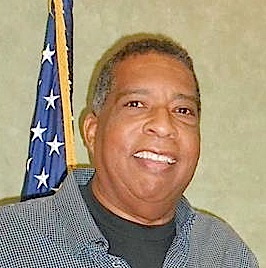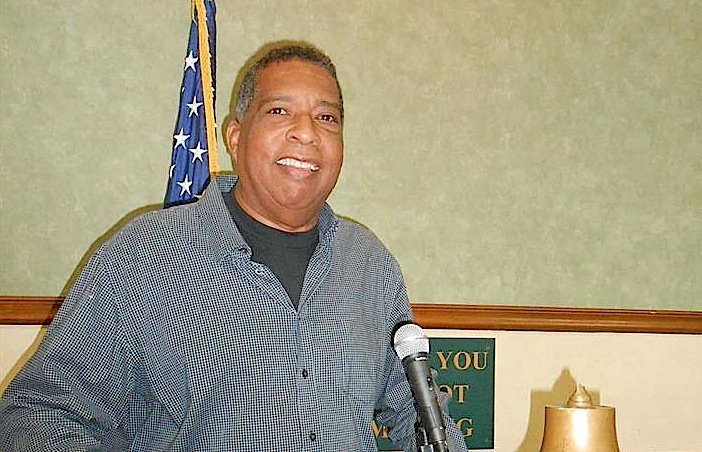
The members of Rotary Club of St. Thomas Sunrise took a test Tuesday morning and found themselves with some surprising results. The group took the "2014 National Drug IQ Challenge," part of the observance of Drug Facts Week, Jan. 27 through Feb. 2, which is sponsored by the National Institute on Drug Abuse.
The group was quizzed by Halroy "Skip" Williams, the son of Toya Andrew and the late Art Andrew, serves on the Council on Alcoholism and Drug Dependence (COAST) along with a host of other community agencies, including the St. Thomas Historical Trust, for which he is secretary; the Humane Society of St. Thomas as a volunteer; and a volunteer on the Governor’s Office of Veteran’s Affairs, where he uses his extensive military background. Williams retired as a major in the Air Force.
On Tuesday, Williams wore his COAST hat and brought home the chilling facts of drug use. (The quiz is linked at end of story)
The first question asks what percentage of 16- or 17-year-olds drove under the influence of drugs or alcohol in 2009. The Rotarians guessed about 3.6 percent; the answer is almost twice that: 6.3 percent. This means out of 200 teenagers, more than 12 drove under the influence. (And this is based, of course, on those caught.)
Williams said, according to the Centers for Disease Control and Prevention, car accidents are the leading cause of death among people aged 16 to 19.
Unfortunately, it isn’t news that regular cigarette smoking is the leading preventable cause of disease and death in the U. S.
However, it was news to most Rotarians that a study that followed 1,000 people for more than 38 years who started smoking marijuana regularly as teens actually lost IQ points as they got older. And they never get them back. It’s a sobering fact. Answering audience questions, Williams repeated, "never, ever” did they get the IQ points back. “Even if they quit as adults," he added.
This means for people of average intelligence, a loss of 8 to 10 points could drop them into the lower third of the intelligence range. This cannot be stressed enough to young people.
Williams wound up the discussion with two Brainiac Bonus questions, the answers, which the group got right, are frightening.
Q1) Repeated drug abuse can change the brain’s reward system. Three of the five suggested answers are correct: This means that large quantities of the chemical dopamine flood your system, creating the "high"; things that normally make you happy aren’t fun anymore; and drug cravings become nearly impossible to ignore.
Q 2) Which is the last part of the brain to mature? A. The prefrontal cortex, which powers our ability to plan, solve problems, control our actions and make good decisions. If the brain gets flooded with drugs, it can affect a teen’s cognitive abilities.
The National Institute on Drug Abuse site is overflowing with information on dealing with drugs.
Speaking after his presentation, members asked him about the island’s tradition of alcohol consumption. Alcohol, being legal, he agreed with the audience, is the most pervasive drug on the market. He lamented changing what he calls "something ingrained in us, in our culture." He said, "We don’t give it the seriousness it really needs."
Willams said later that after returning to the island, he’s gotten much more involved. “What I see as a regular civilian, young people driving while smoking weed and drinking, is very unsettling."
He said, "We have to keep trying to educate the youngsters and not give up. It is very important."
Flemon Lewis, organizer of the Law Enforcement Planning Commission’s annual Night Out Against Crime, said the V. I. National Guard and the U. S. Army recruiting office both have programs to combat drug and alcohol abuse locally.
Department of Education spokeswoman Ananta Pancham said Tuesday that there are no such programs in the public schools.
Williams is one of a series of speakers the club has invited to speak in its Practice Peace initiative. Peace and conflict resolution is one of Rotary International’s six areas of focus and will be the core focus for Rotary Sunrise during its 2013-14 Rotary year.
Rotary’s 107th birthday is Feb 21, also known as World Understanding and Peace Day, which is being targeted as the kick-off date for a major peace summit.
The local Practice Peace Initiative Planning conference is Feb. 19. To join with our community members to work in and toward peace in our tiny home island, call 777-8144 or 643-6550. The following link contains full information.
